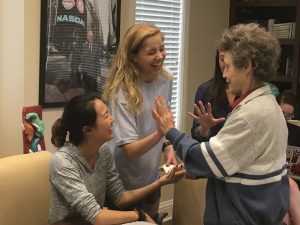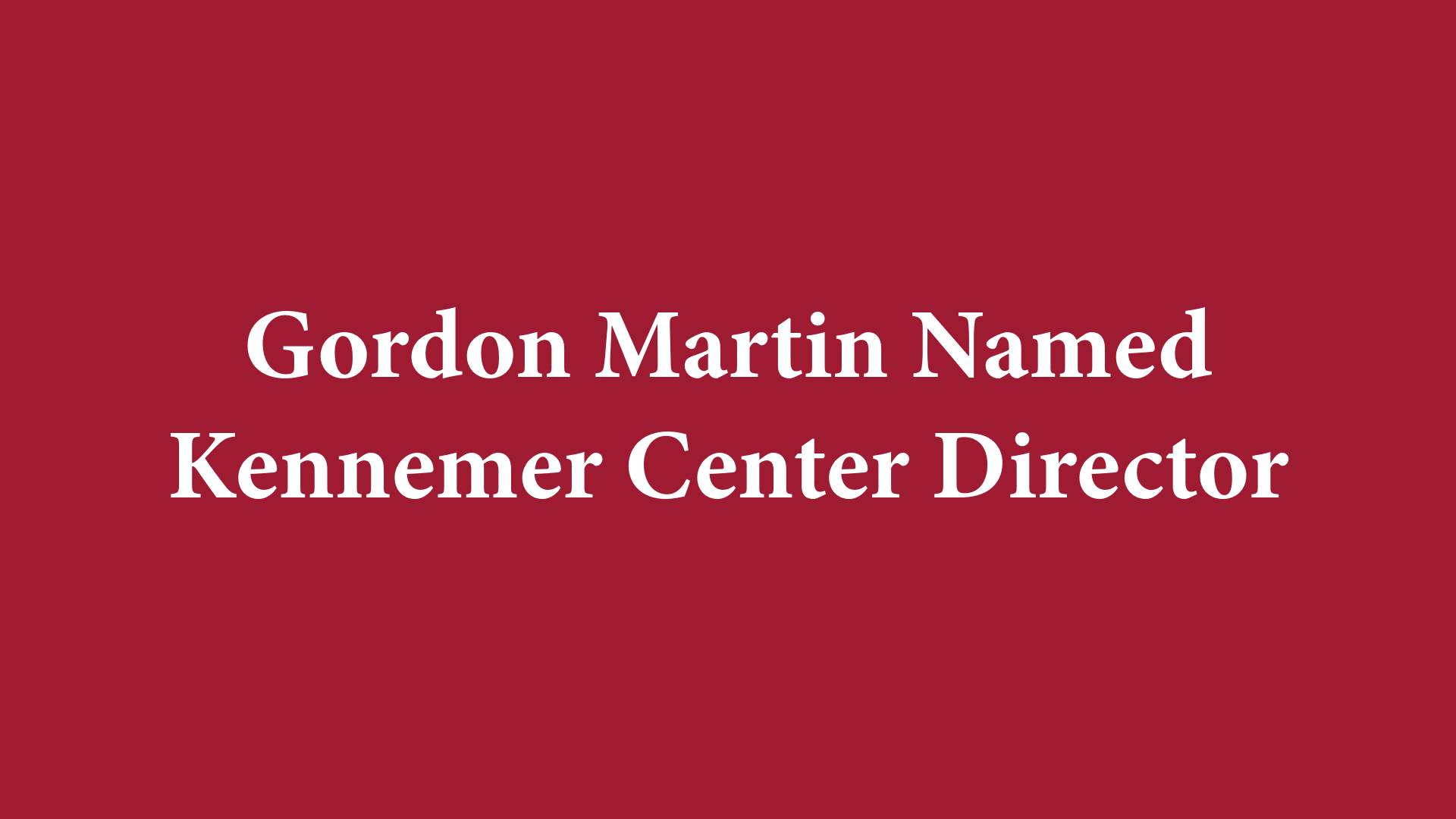- April 24th, 2017
As first a student in UH 300 Art to Life and now a student facilitator for the course, Maggie Holmes knows this class is “a way to directly impact people’s lives.” The service-learning course, begun in 2011, is a partnership between the Honors College and Dr. Daniel Potts, a Tuscaloosa neurologist, and his foundation, Cognitive Dynamics. Dr. Potts was inspired to create the course after his father, who had Alzheimer’s disease, died in 2007. It has now impacted more than 100 Honors students and many community members with Alzheimer’s.
Art to Life matches Honors College students with individuals with Alzheimer’s at Caring Days Adult Day Care in Tuscaloosa. Students assist the participants with art therapy, an activity that positively impacted Dr. Potts’s father, Lester. As the students interact with their participants, they try to draw out memories and stories, which are collected in leather-bound “memory books,” treasured keepsakes for the participants and their families. Students’ understanding of storytelling and life story preservation are key outcomes of the class, but so is the development of empathy for individuals with cognitive impairment or, in fact, any disability.
that positively impacted Dr. Potts’s father, Lester. As the students interact with their participants, they try to draw out memories and stories, which are collected in leather-bound “memory books,” treasured keepsakes for the participants and their families. Students’ understanding of storytelling and life story preservation are key outcomes of the class, but so is the development of empathy for individuals with cognitive impairment or, in fact, any disability.
Maggie, a junior pre-med major, took Art to Life as a freshman, inspired in part by her experience with her grandmother, who had Alzheimer’s. Now, as a student facilitator, she works with Dr. Potts to interview and select the students in the course; schedule the art therapy sessions; and plan the end-of-semester celebration for the students, the participants, and their families. Through her years of involvement with the program, she has been able to witness just how special it is. She observes, “It is a beautiful thing to see the relationships grow between the students and the participants.” She describes the course as “unique” and calls the experience a “huge opportunity to grow as a person and enrich your life.”
Before the students begin interacting with the participants at Caring Days, they experience a Virtual Dementia Tour, which simulates the experience of someone with Alzheimer’s, and they attend in-class lectures and discussions in order to learn “patient-centered care” and prepare to interact appropriately with the elderly participants. Among the things that students learn are to make eye contact with their participants and not to come up behind them and startle them. They also develop the appropriate terminology to use.
Working with this particular sub-set of the Tuscaloosa community is one of the things that Maggie describes as special and “much needed.” Although many service-learning courses at UA involve children, fewer address the needs of this population. As she looks to her own future as a physician, one of her goals is to be involved in the community. “A doctor should understand the needs of the community,” she says.
Although many of the students who take Art to Life plan to become physicians like Maggie, she points out that students come from a variety of majors, and everyone has something to contribute and something to learn from the experience. Asked to reflect on what she has gotten from involvement with the course, Maggie observes that Art to Life developed not just her understanding of the impact of Alzheimer’s on the individuals who have it but also the effect on their families. You never know, she says, what stresses other people are under, and through this experience, she has “learned how to be more accommodating to caregivers.”
UH 300 Art to Life is offered each fall and spring to students in the Honors College. Learn more about the course and its impact on the Tuscaloosa community at http://cesr.ua.edu/ua-students-use-art-to-enhance-quality-of-life-for-alzheimers-patients/ and https://www.youtube.com/watch?v=Eb_XWqwYDnE&t=345s
